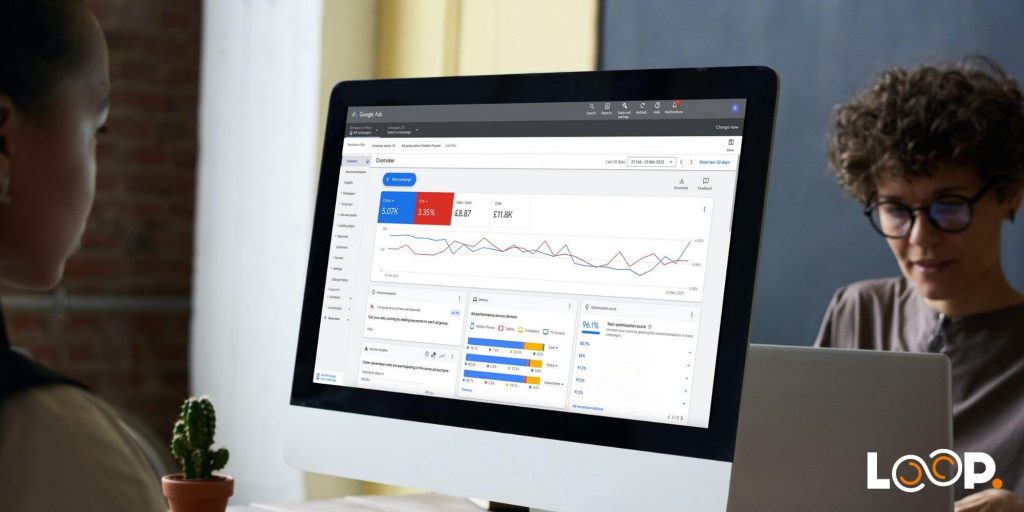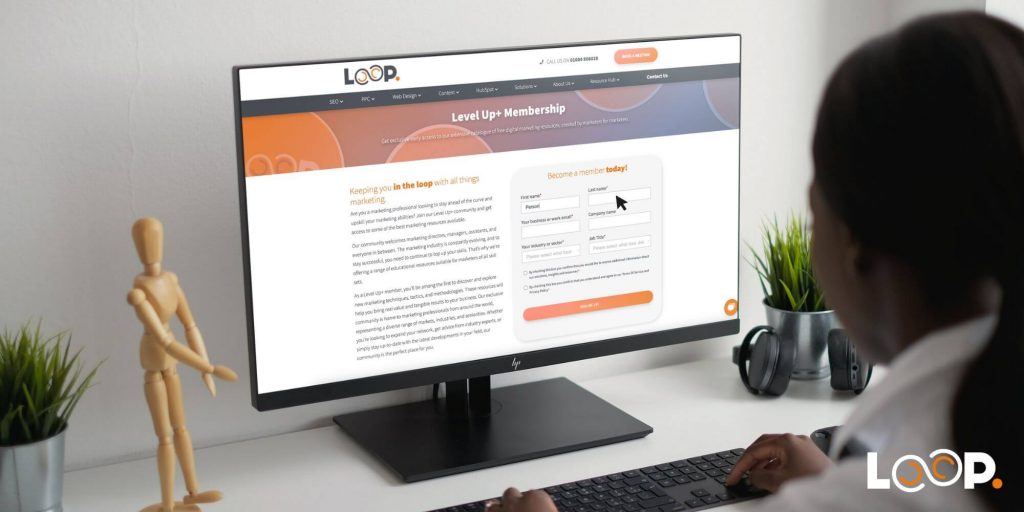Vinod is an indispensable asset to our team, serving as a highly skilled Paid Search Specialist. With an exceptional ability to analyse competitors and identify innovative strategies, Vinod continuously strives for excellence in his work. His profound passion for writing and effective client communication further strengthens his ability to deliver outstanding results. Vinod’s unwavering dedication to tackling challenges head-on in order to achieve tangible and remarkable outcomes sets him apart. Bringing with him a wealth of knowledge, Vinod embarked on his educational journey, pursuing a Master’s degree in Marketing at UOB. Although not yet completed, his extensive coursework has equipped him with a comprehensive understanding of the intricacies of marketing. Vinod’s acute understanding of client needs enables him to develop targeted campaigns that not only surpass competitors but also drive significant growth for our clients. Beyond his professional pursuits, Vinod indulges in his passion for music by playing the guitar, honing his skills, and channelling his creativity. Additionally, his love for football provides him with an outlet to foster teamwork, resilience, and a competitive spirit. Vinod’s expertise as a Paid Search Specialist, coupled with his unyielding enthusiasm and commitment to delivering exceptional results, make him an invaluable member of our team. His ability to analyse competitors, craft compelling campaigns, and foster strong client relationships propels our clients toward unprecedented success.
Posted on 24/03/2023 by Vinod Velusamy
Measuring Success Of Your PPC Campaigns
Once you’ve set up a pay-per-click (PPC) campaign the hard work doesn’t stop there. To ensure long-term success and to better the performance of your ads, you should be tracking and analysing your PPC campaign at all times. If you do this right, you will improve the effectiveness of your campaign, improve its efficiency and ultimately secure a positive return on investment that meets your business expectations.
But how do you monitor your PPC campaigns?
The answer is through key performance metrics. This all-important data is your roadmap to achieving a successful PPC ad campaign that is performing to the maximum level to drive business growth.
Why is Tracking PPC Campaigns Critical?
PPC is a complex advertising strategy and it’s highly unlikely that you’ll get it right the first time around. Even when your campaign isn’t performing at the level you expected and the return on investment isn’t quite what you had imagined, it’s important not to abandon everything altogether.
That’s where the importance of metric tracking comes in. By understanding and monitoring some of the key performance metrics in PPC you have an opportunity to identify and fix problem areas within your campaigns. Whether it’s finding the right keywords to target, reviewing your ad copy, revisiting your PPC landing pages or something entirely different, performance metrics enable you to make informed decisions to better your success.
The more attention you pay to the numbers, the faster you will be able to pinpoint the areas that need to be optimised or developed. Once the problem areas are identified you can begin working on effective solutions that will boost the success of your ads and promise a positive ROI.

Because PPC is based on how much you bid for a keyword space, it’s important to always make sure you’re not overpaying. Monitoring the key PPC metrics will ensure that you get better value for your money to maximise the potential of your campaign. A high bid doesn’t necessarily promise a conversion and it might make sense to focus your efforts on lower-spend ad spaces that may produce higher conversion rates.
Key Metrics to Measure In Your PPC Campaigns
When it comes to measuring the success of PPC campaigns, there are several metrics that should be reviewed regularly to help track the effectiveness of the campaigns. In the next section of this blog, we will outline the different metrics that we will review and explain why they are important in measuring the success of your PPC campaigns.
- Impressions
- Click-Through Rate (CTR)
- Quality Score (QS)
- Conversion Rate (CR)
- Return on Investment (ROI)
- Cost-Per-Click (CPC)
- Cost-Per-Conversion (CPCO)
- Bounce Rate
- Clicks
- Conversions
Impressions
An impression is simply a measurement of the number of times that your ads are shown on a search engine results page. When your ad is displayed, that counts as one singular impression. This gives a clear indication of how many individuals are seeing your ads within a particular channel and is useful information for determining a wide range of other key PPC metrics.
Whilst impressions are a key metric it’s important to remember that they’re useless if users are not clicking on the ads. Ensure that all of your ads are properly optimised and titles and descriptions are working fully to bring users to your site.
Click-Through-Rate (CTR)
The click-through rate (CTR) is one of the most effective metrics for displaying whether or not your audience found your ads to be useful. This makes it a popular one for PPC experts as ads that are considered relevant and helpful will directly result in more conversions. CTR is calculated by dividing the number of users who click your ads by the number of impressions – an industry way to describe users that see your ads.
CTR is a quick and simple way of identifying which ads, listings and keywords aren’t performing to the optimum level. Work can then be done on improving quality scores (more on that next), optimising negative keywords and developing high-quality CTA’s on the underperforming ads.
Quality Score (QS)
When PPC experts want an overall metric that takes into account the performance of keywords, ads and landing pages, the quality score metric is what they use. This is a 1 – 10 rating which shows how well Google rates your ads and their overall performance. It takes into account other factors such as CTR, ad relevance and landing page experience – the better your performance on each the higher your quality score.
It goes without saying that a higher quality score will result in a larger number of conversions on your website. Not only this but a higher score means an ad is more relevant, and a more relevant ad is rewarded by Google with higher ad rankings and lower costs.
Conversion Rate (CR)
There are lots of important PPC metrics out there, but the top and bottom of your ad campaign are how many users are actually converting into a customer of your product or service. A conversion rate is a percentage of conversions per ad interaction – also known as clicks or swipes for shopping or text ads or views for video ads. A well-performing ad is likely to have a higher conversion rate, whilst a lower conversion rate is a good indicator that an ad needs some work.

It’s important to remember that a conversion differs from business to business and it depends on what you have set up to be classed as a conversion. This could be a simple product sale, signup to a newsletter or some form of contact such as a phone call or Email.
Return on Investment (ROI)
Return on investment is likely to be a metric that all individuals in business have at least heard of at some point. It is simply the profit you have made from your ads compared to their overall cost, and can be worked out using the equation; revenue – the cost of goods sold / cost of goods sold. ROI is often seen as the most important measurement as it shows how your ads are helping to improve the success of your business.
Cost-Per-Click (CPC)
Cost-per-click is exactly what it sounds like; the actual individual cost to your business when someone clicks on one of your ads. CPC is determined by taking the cost of a campaign and dividing it by the number of clicks that an ad gets.
If we think that PPC works by charging a business for every click they get on their ads. A business must bid on target keywords to enable them to show on relevant search engine results pages. The more you bid, the better chance you have of landing a good position which will lead to more clicks.
Because the price of a click will fluctuate, ensuring that you’re paying a cost that is within your ad strategy is a key factor in the success of your overall ad campaign. Luckily you can set a maximum cost-per-click to ensure that you don’t end up overpaying for a click.
Cost-Per-Conversion (CPCO)
The average cost of a conversion is displayed using the cost-per-conversion metric. It is calculated by dividing the overall cost of your ad by the number of conversions. CPC is an essential way of determining the success of your google ad campaigns and is essentially a representation of how much it is costing your business to make a sale through PPC.
To boost your overall CPC you have a number of options. Look for low-converting keywords in your ad campaign and pause them, utilise the negative keyword list, invest in keywords which are high converting, and of course ensure that your ad copy and landing pages are fully optimised to push visitors to the next step.
Bounce Rate
A bounce rate is a measurement of the number of users that visit your website through an ad and do not visit another page or trigger another event. This makes it a great measurement for identifying ads that are not performing to the level that they should be, despite receiving clicks.
A high bounce rate shows that a user has clicked on one of your ads but hasn’t found what they were looking for on your website. Your ad copy might be inaccurate or even dishonest, the keywords you’re targeting may need a reevaluation or the web page itself could be putting users off converting.
Clicks
Perhaps the most straightforward metric of all, clicks refers to the number of individual clicks your ad receives. It is an essential measurement and shows how successful your ads are to your audience. Clicks are also needed to work out other key metrics such as cost-per-click, click-through-rate and more.

Conversions
A conversion in PPC ads is when a visitor to your site performs an action after clicking on an ad. The most obvious form of conversion is a sale although they can come in all kinds of other formats too – it totally depends on what you’ve set up to be classed as a conversion. This might be signing up for a newsletter, installing an app on a phone, contacting the business further via phone or email or downloading a resource.
Tracking your conversions is an essential part of determining the success of your ad campaigns and helps to determine other key measurements such as cost-per-conversion and conversion rates.
Successful PPC Ad Campaigns with Loop Digital
At Loop Digital, we’re passionate about producing effective and successful pay-per-click ad campaigns that help to drive growth for our clients. We use continuous monitoring and tracking to achieve optimal results and work consistently to develop and better our campaigns. To see what our PPC ad services can do for your business, contact a member of our team today to find out more.
Looking for your next opportunity?
Digital marketing careers
We’re always on the lookout for talented individuals to join our ever growing team. If you think you’d be a great match for Loop Digital, we’d love to hear from you.

Join 300+ business owners getting weekly growth strategies - subscribe now.
"*" indicates required fields






